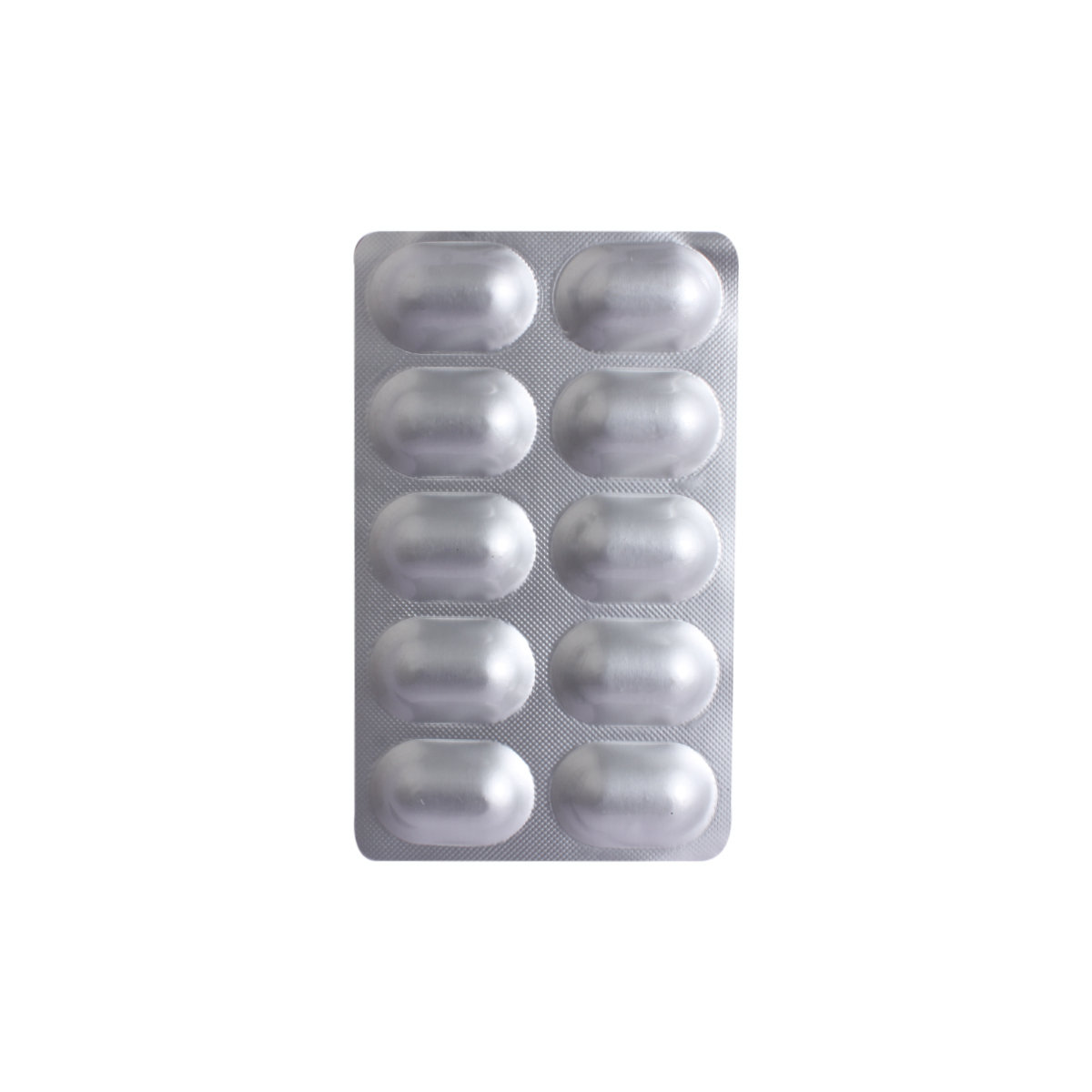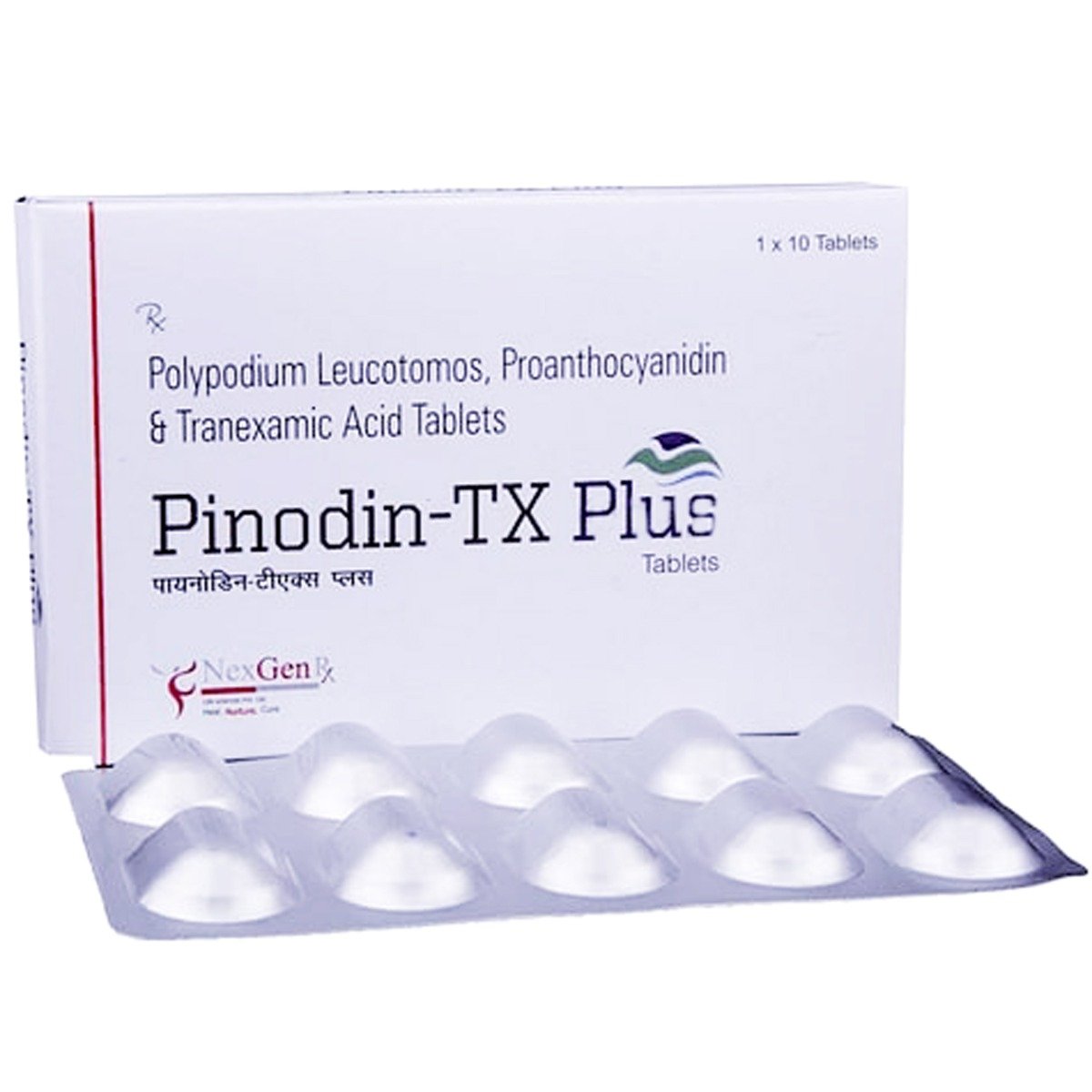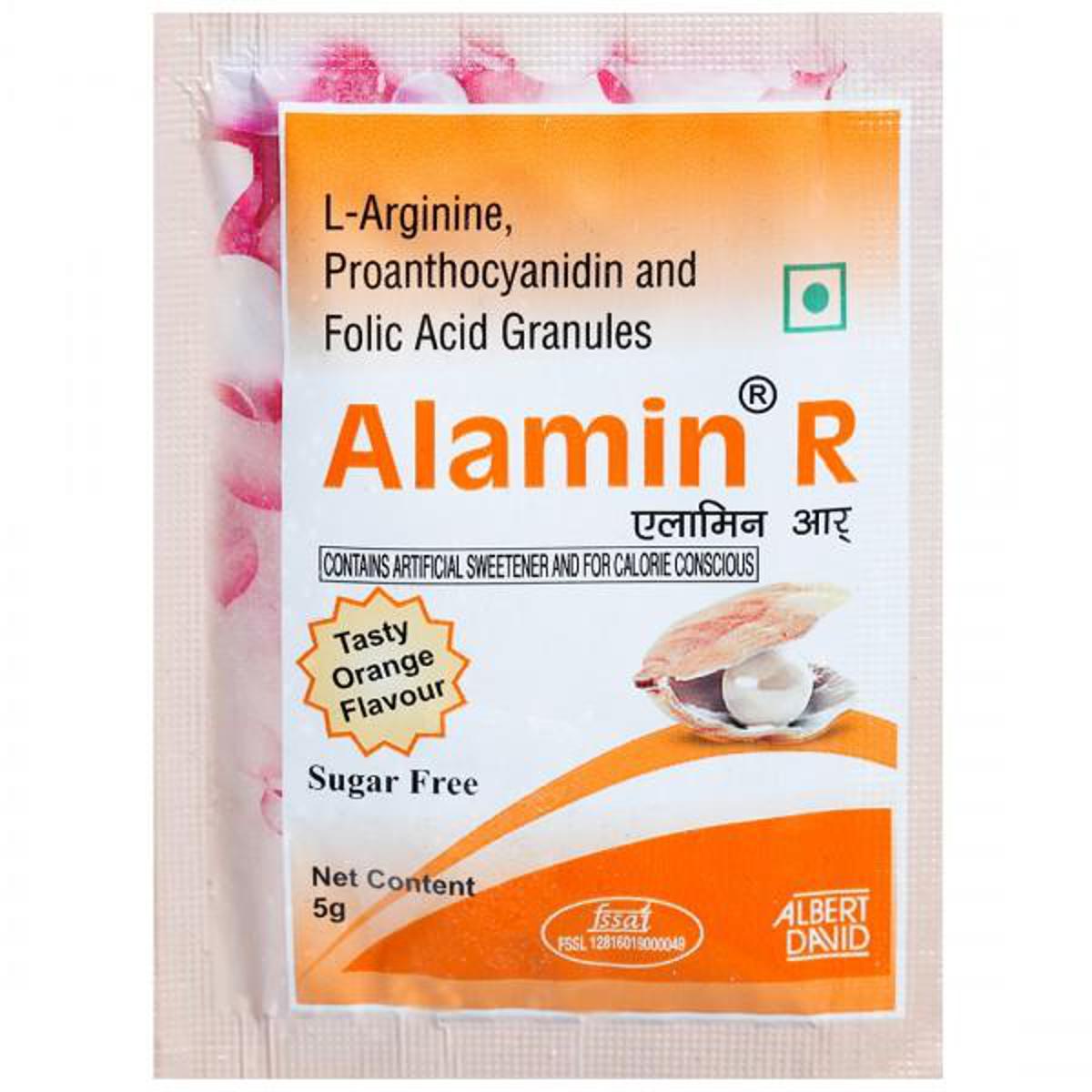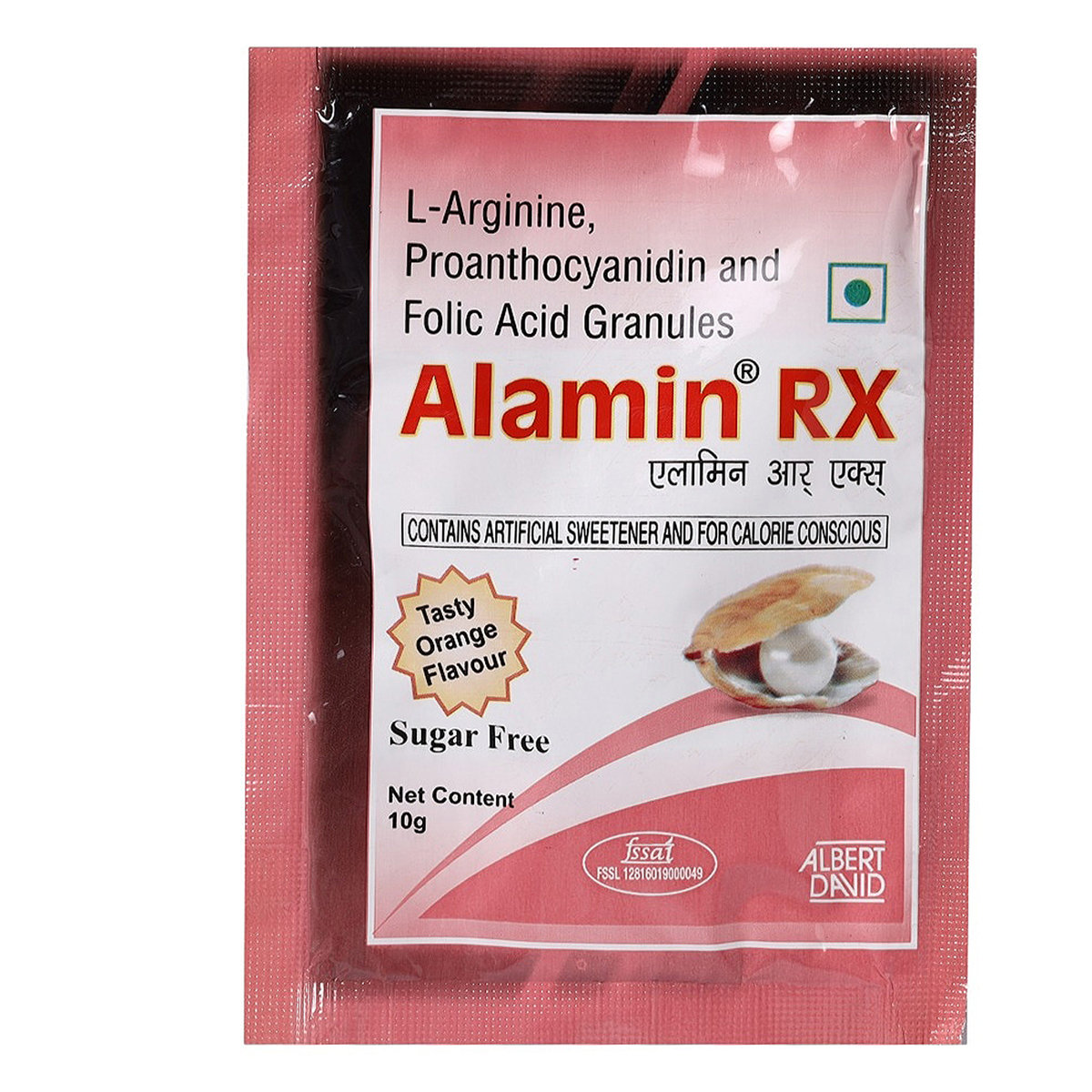Proanthocyanidin+tranexamic Acid
About Proanthocyanidin+tranexamic Acid
Proanthocyanidin+tranexamic Acid is used in the treatment of hyperpigmentation. Hyperpigmentation is a condition where skin colour appears uneven due to the formation of patches because of the concentration of melanin. Hyperpigmentation can include sunspots, retinopathy (an eye disease), age spots, melasma or chloasma.
Proanthocyanidin+tranexamic Acid contains proanthocyanidin and tranexamic acid. Proanthocyanidin+tranexamic Acid functions by reducing the concentration of the melanin deposits, thereby making the patches appear lighter. It also helps in rejuvenating and brightening the skin and restoring it to its normal complexion.
Take Proanthocyanidin+tranexamic Acid as advised. In some cases, Proanthocyanidin+tranexamic Acid may cause common side effects such as headache, sinusitis, diarrhoea, nausea, vomiting, body pain, fatigue, a stuffy nose and dizziness. Most of these side effects do not require medical attention and will resolve gradually over time. However, you are advised to talk to your doctor if you experience these side effects consistently.
Before taking this medicine, inform the doctor if you have any known pre-existing allergy, thromboembolic disorder, cardiovascular disorder, hypersensitivity, or irregular menstrual bleeding. Please consult your doctor before taking Proanthocyanidin+tranexamic Acid if you are pregnant or breastfeeding. It is not advisable to consume Proanthocyanidin+tranexamic Acid with alcohol as it may cause dizziness.
Uses of Proanthocyanidin+tranexamic Acid
Medicinal Benefits
Proanthocyanidin+tranexamic Acid contains proanthocyanidin and tranexamic acid. It is used to treat pigmentation by restoring the normal colour of the skin Proanthocyanidin inhibits the activity of melanocytes (melanin-producing skin cells) and directly decreases melanin concentration by reducing the activity of the enzyme tyrosinase which is responsible for melanin synthesis. It also promotes collagen (a major skin protein) synthesis, thereby improving skin quality and evenness of complexion. Tranexamic acid is an antifibrinolytic (prevents dissolution of fibrin, a major blood component required for the normal clotting of blood) that reduces pigmentation and protects skin from UV radiation.
Directions for Use
Storage
Side Effects of Proanthocyanidin+tranexamic Acid
- Headache
- Nausea and vomiting
- Sinusitis
- Stuffy nose
- Diarrhoea
- Dizziness
Drug Warnings
Exercise caution in case of a history of thromboembolic disorders, cardiovascular disturbances, renal impairment, menorrhagia, haemophilia, DIC and subarachnoid bleeding (brain haemorrhage). Proanthocyanidin+tranexamic Acid should not be used in case of any known allergy to either of the components. Please consult the doctor before using Proanthocyanidin+tranexamic Acid during pregnancy or breastfeeding. Let your doctor know if you are taking any medicines or herbal supplements.
Drug Interactions
Drug-Drug Interaction: Proanthocyanidin+tranexamic Acid may interact with pain killers (aspirin, acetaminophen), antacids (esomeprazole), blood thinners (clopidogrel), benzodiazepine (diazepam), skeletal muscle relaxants (cyclobenzaprine), bronchodilator (albuterol), and vitamin (vitamin c)
Drug-Food Interaction: No interactions found.
Drug-Disease Interaction: Proanthocyanidin+tranexamic Acid is contraindicated in patients with a known hypersensitivity disorder, thromboembolic disorder, chronic sinusitis and any haemorrhage or bleeding disorders.
Drug-Drug Interactions Checker List:
Safety Advice

Alcohol
cautionProanthocyanidin+tranexamic Acid may cause disorientation when taken with alcohol. Please consult your doctor before use.

Pregnancy
cautionThere is not enough literature to explain the effects of Proanthocyanidin+tranexamic Acid on pregnancy. Please consult your doctor.

Breast Feeding
cautionThere is not enough literature to explain the effects of Proanthocyanidin+tranexamic Acid on lactation. Please consult your doctor.

Driving
cautionThere is not enough literature to explain the effects of Proanthocyanidin+tranexamic Acid on driving. Do not drive if you experience any side-effects that alter your thinking ability or concentration.

Liver
cautionLimited information is available. Please consult your doctor in case of any concerns.

Kidney
cautionLimited information is available. Please consult your doctor in case of any concerns.

Children
cautionNot enough information is available on the effects of Proanthocyanidin+tranexamic Acid on children below 12 years of age. Please consult your doctor.
Habit Forming
Diet & Lifestyle Advise
- Along with Proanthocyanidin+tranexamic Acid, ensure good protection from the sun by using long-sleeved clothing, sunblock and reducing your daily exposure from harmful sunrays.
- Avoid wearing tight and dark coloured clothing on the affected area, after applying Proanthocyanidin+tranexamic Acid.
Special Advise
Patients Concern
Disease/Condition Glossary
Hyperpigmentation: Hyperpigmentation is a condition where skin colour appears uneven due to the formation of patches because of the concentration of melanin. This makes the skin in those patches look different to the rest of the surrounding skin and gives the face an uneven appearance. Hyperpigmentation can include sunspots, retinopathy (an eye disease), age spots, melasma or chloasma et cetera.
FAQs
Proanthocyanidin+tranexamic Acid works by reducing melanin concentration and is hence used to treat hyperpigmentation.
Proanthocyanidin+tranexamic Acid is used in the treatment of hyperpigmentation disorders, including melasma. Melasma is a notorious disease resistant to treatment. Please consult your dermatologist for a detailed treatment of melasma.
As anaemia (lowered blood levels) is a side-effect of Proanthocyanidin+tranexamic Acid, it is not advisable to consume Proanthocyanidin+tranexamic Acid if you have anaemia. Please consult your doctor.
If you miss a dose, take it as soon as you remember. However, if it is time for the scheduled dose, skip the missed dose and take the scheduled dose.









